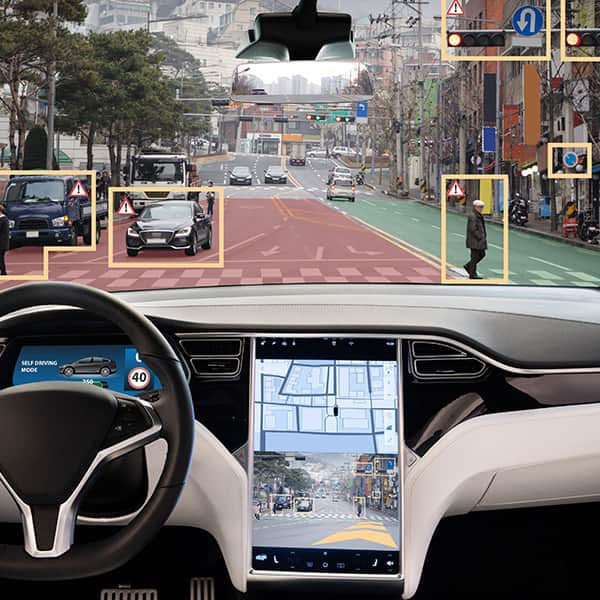
Driving safety and convenience are at the heart of self-driving cars, however, many Americans are still very skeptical about driving one. Automobile manufacturers have been testing and perfecting technology to make these cars safe for everyone from first-time drivers to senior citizens and everyone in between. Industry experts see the potential for self-driving cars for entry-level vehicles, premium vehicles, and even commercial vehicles.
Self-Driving Car Statistics
According to Intel, these are some of the promising opportunities for self-driving cars to change driving and society as a whole for the better:
- Prevent most accidents — approximately 90 percent of accidents are due to driver error
- Lower the death rate for children under 12
- Decrease overall traffic deaths from the estimated 1.3 million each year
- Reclaim the 5.5 billion hours of lost productivity time that Americans spend in their car
- Save drivers $121 billion in time and fuel each year due to traffic congestion
Self-Driving Car Requirements
Self-driving cars are designed to anticipate a driver's needs and act upon them to make driving safer and more enjoyable. Just a fraction of a second can mean life or death when behind the wheel, so these cars must be reliable, secure, and capable of accurate real-time decision-making. Self-driving cars require excellent computing power, which means state-of-the art hardware and software to manage the complex functions.
An estimated 1 GB of data needs to be processed for each second that a self-driving car is in operation. Most of the computing power in a self-driving car is located safely under the driver's seat.
There must be a reliable supply of self-driving cars, manufactures, and service technicians to build, deliver, and perform maintenance upon them when needed. Various sectors of the automotive industries will need to undergo extensive training to meet the needs of this new wave of technology. Experts also believe that a centralized approach is needed to help all these sectors work together efficiently. Personal security and privacy are also important issues for drivers of self-driving cars, and keeping them efficient in all types of road conditions and safe from hackers is a top priority.
Cost of Self-Driving Cars
Aside from safety concerns, what holds many people back from the idea of owning a self-driving car is the cost. IHS Automotive estimates that self-driving technology will add $7,000 to $10,000 to a car's price in the next decade, but that it will drop to around $3,000 by the year 2035. But overall, economists have estimated that self-driving cars will result in over a trillion dollars of savings to the U.S. economy, including $158 billion in annual fuel costs, and $488 billion in annual accident cost reduction savings.
So what do you think? Would you consider buying a self-driving car in the future?

